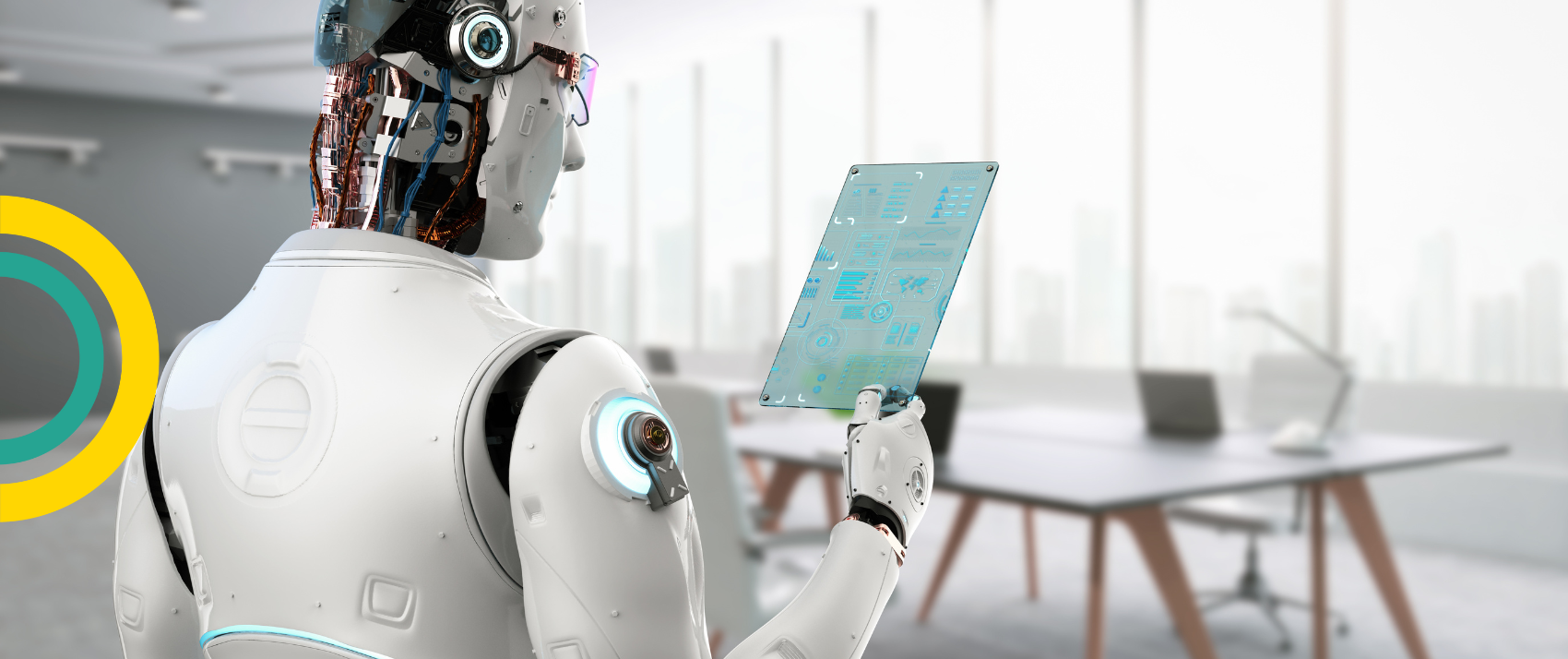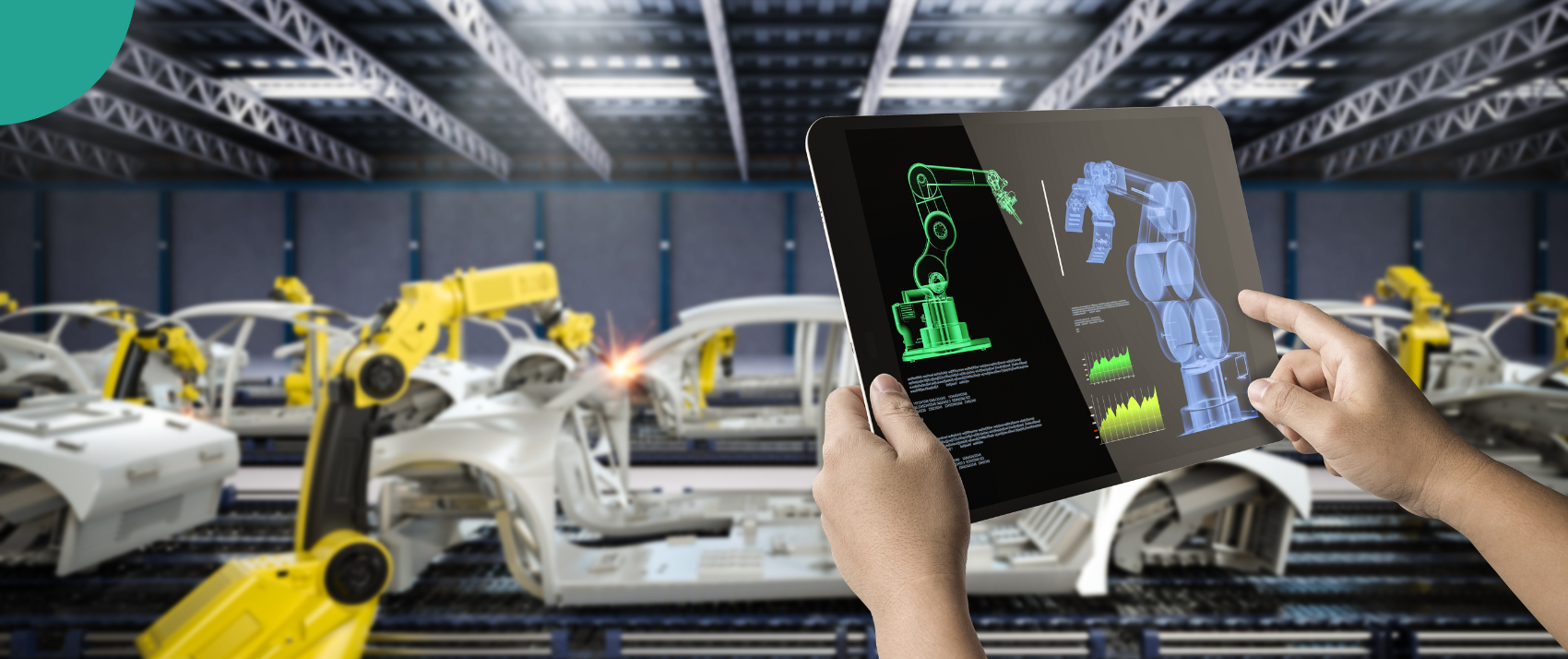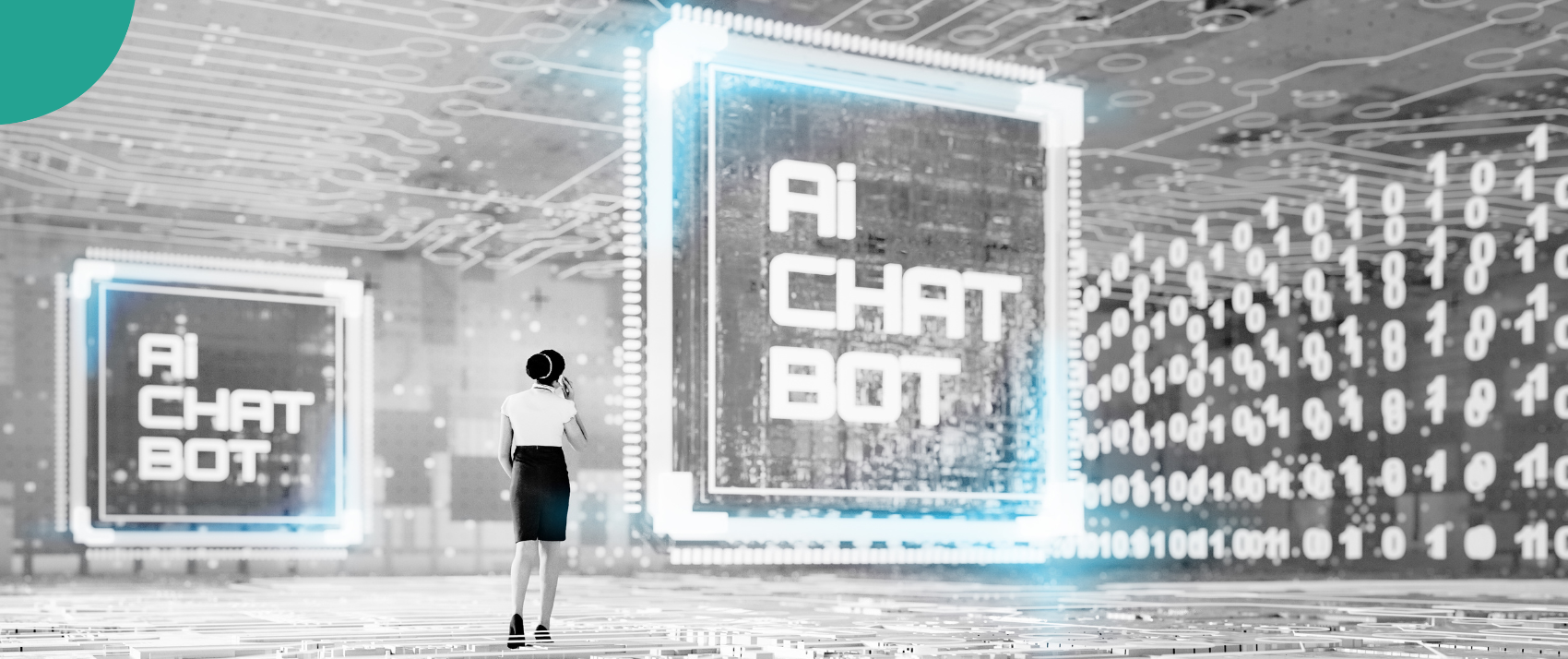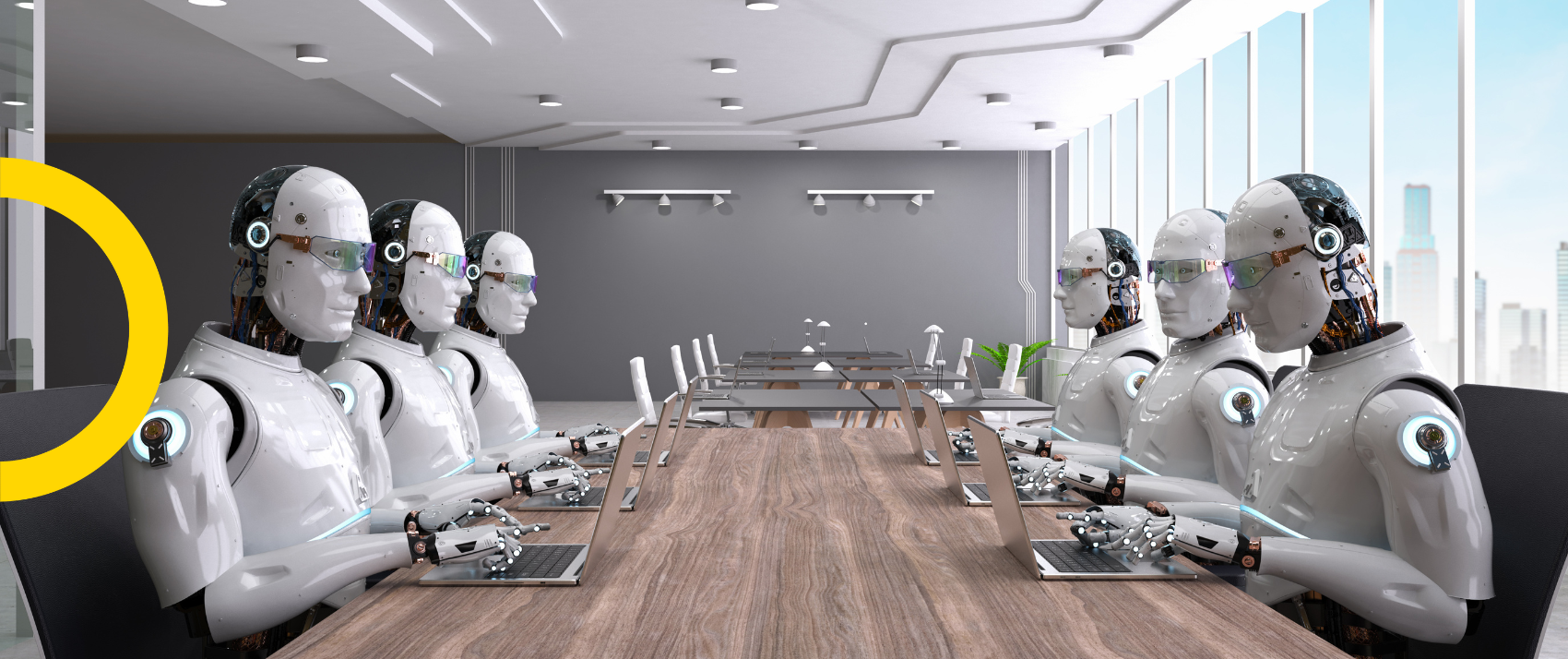Unveiling the AI Paradox: Boosting Productivity or Job Apocalypse? 64% of businesses expect AI to skyrocket productivity, but an astonishing 77% fear job loss. Brace yourself! Surprisingly, according to the World Economic Forum AI is projected to spawn 97 million new jobs. Prepare to be captivated by the enigmatic realm of artificial intelligence.
Indeed, this world is poised on the cusp of an unprecedented technological revolution. Artificial Intelligence (AI) is not just an ephemeral trend. PwC projects that AI will contribute $15.7 trillion to the global economy by 2030, fundamentally altering the way we live, work, and interact. Despite these eye-opening figures, the adoption and understanding of AI technologies are far from ubiquitous. A survey by IBM states that only 35% of businesses have adopted AI, with a further 42% exploring its implementation.
Global AI Adoption Index

Should Your Organisation Adopt AI?
In this increasingly digitised era, the burning question is not whether organisations should adopt AI, but how they can effectively leverage it for optimum results. This article seeks to demystify AI and AI automation software, underline their critical role in today’s organisations, and shed light on the potential challenges and opportunities they present. In addition, we’ll touch upon the importance of developing AI-related skills, something that our AI courses at Digital Regenesys aim to facilitate.
What Is AI Automation?
Firstly, let’s explore what AI automation is. It’s the use of advanced AI technologies, including machine learning and natural language processing, to automate tasks traditionally performed by humans. These tasks can range from data analysis to customer service – the possibilities are infinite. And the impact? Consider this: AI implementation at Netflix has resulted in a staggering $1 billion in savings.
AI automation enables organisations to streamline operations, eliminate redundancies, and boost productivity. This is particularly relevant in the face of labour shortages that drive AI adoption in 25% of companies. But the benefits of AI extend beyond operational efficiency. Forbes states that over 60% of businesses view AI as a means to enhance customer relationships. AI-powered chatbots, for example, can provide round-the-clock customer service, slashing operational costs.
Examples of AI Automation Revolutionising Industries
Artificial Intelligence has become a transformative force across industries, revolutionising the way we work, live, and interact with technology. With its diverse applications, AI automation has streamlined processes, improved efficiency, and enhanced decision-making capabilities.
Manufacturing: Optimising Efficiency and Quality
With recent technological advancements the manufacturing industry is on steroids, all thanks to AI. Robots are new teammates – ‘cobots‘ if you will – streamlining work, boosting productivity, and going green. AI optimises 3D printing, accelerates innovation, and is a crystal ball predicting machine maintenance times. From inventory to prices, AI is going for it all, even creating digital twins for design and logistics. A true manufacturing revolution, smarter, safer, faster, and ever-ready; all powered by AI.
Healthcare Management: Personalised Care and Improved Diagnoses
AI automation has had a profound impact on healthcare management, enabling personalised care and improving diagnostic accuracy. PathAI, for instance, assists pathologists in analysing tissue samples, speeding up the diagnosis process and enhancing precision. Companies like Well offer personalised health plans based on individual needs, while Atomwise accelerates drug discovery using AI algorithms. Furthermore, AI-powered chatbots, such as Pager, provide immediate assistance to patients with minor health concerns, reducing the burden on healthcare providers.
Financial Investing: Enhanced Decision-Making and Efficiency
In the financial sector, AI automation has revolutionised investing and decision-making processes. AlphaSense offers a powerful financial search engine that enables investors to access relevant information quickly, facilitating more informed investment decisions. Betterment provides automated financial investing, leveraging AI algorithms to manage portfolios based on individual goals and risk tolerance. These AI-powered tools have democratised investing, making it more accessible to a wider range of individuals.
Social Media Monitoring: Analysing Trends and Enhancing Engagement
In the realm of social media, AI automation has become indispensable for monitoring trends, analysing user behaviour, and enhancing engagement. Platforms like Twitter, Slack, and Meta leverage AI algorithms to curate personalised content, improve ad targeting, and detect fraudulent activities. These AI-powered systems analyse vast amounts of data in real-time, allowing businesses to stay ahead of trends and better connect with their target audience.
Marketing and Advertising: Targeted Campaigns and Enhanced ROI
AI automation has transformed the landscape of marketing and advertising, enabling businesses to create targeted campaigns and optimise return on investment (ROI). Companies like EliseAI, RTB House, Drift, and GumGum leverage AI algorithms to analyse customer data, predict consumer behaviour, and personalise marketing campaigns. By automating tasks like ad placement and content optimisation, AI automation maximises the efficiency of marketing efforts and improves overall campaign performance.
Intelligent Automation: Streamlining Decision-Making and Workflow
Intelligent automation, the combination of AI, business process management (BPM), and robotic process automation (RPA), offers a transformative solution for organisations seeking to optimise decision-making and streamline workflows. AI analyses vast amounts of data, formulating predictions and insights that drive informed decision-making. BPM automates workflows, ensuring agility and consistency in business processes. RPA utilises software robots to handle repetitive tasks, freeing up human resources for more strategic endeavours. The integration of these components empowers organisations to achieve operational efficiency, improve customer experiences, and stay ahead of the competition.
Case Usages of Intelligent Automation: Enhancing Efficiency and Accuracy
Intelligent automation finds application across various industries, delivering enhanced efficiency and accuracy in multiple use cases. Let’s explore some examples.
Data Extraction and Analysis: Unleashing Insights
Intelligent automation, through the use of AI algorithms, enables organisations to extract and analyse data more efficiently. By automating data extraction processes, businesses can uncover valuable insights, identify patterns, and make data-driven decisions. This use case is particularly relevant in fields such as finance, where accurate and timely data analysis is crucial.
Customer Interaction and Engagement: Personalised Experiences
Intelligent automation enables businesses to provide personalised customer interactions at scale. AI-powered chatbots and virtual assistants offer round-the-clock support, answering queries, resolving issues, and engaging customers in meaningful conversations. This results in improved customer satisfaction, reduced response times and enhances overall brand experience.
Recruitment and HR Processes: Streamlining Workflows
Intelligent automation simplifies and streamlines recruitment and HR processes. By leveraging AI algorithms, organisations can automate resume screening, candidate shortlisting, and even conduct initial interviews. Ultimately saving time, improving the efficiency of talent acquisition, and enabling HR teams to focus on strategic initiatives.
Payroll Processing and Financial Reporting: Ensuring Accuracy
Intelligent automation improves the accuracy and efficiency of payroll processing and financial reporting. By automating these processes, organisations can minimise errors, reduce manual effort, and ensure compliance with regulatory requirements. This is particularly valuable for finance and accounting departments, where precision and timeliness are critical.
Manufacturing and Supply Chain: Optimising Operations
Intelligent automation plays a crucial role in optimising manufacturing and supply chain operations. Predictive maintenance uses AI algorithms to analyse data from sensors and equipment, enabling proactive maintenance and minimising downtime. AI-powered systems also facilitate efficient inventory management, demand forecasting, and supply chain optimisation, leading to cost savings and improved operational efficiency.
The Power of AI in Organisations
Artificial Intelligence has emerged as a game-changing tool that revolutionises industries, providing valuable insights and opportunities for businesses to navigate economic uncertainties effectively. Leading organisations have already witnessed the transformative potential of AI, including companies like 1-800-Flowers, Netflix, and Stitch Fix. These businesses have successfully implemented AI solutions such as chatbots, personalised content recommendations, and AI-powered market research tools to improve customer service, enhance customer experiences, and make data-driven decisions.
AI automation for Small Businesses
In today’s competitive era, small businesses need to stay ahead of the curve to thrive. Embracing cutting-edge technologies such as Artificial Intelligence (AI) and automation can provide a significant advantage by streamlining processes, enhancing efficiency, and driving growth. Let’s explore the numerous benefits and practical applications of AI automation for small businesses.
1. Understanding Customer Needs
AI-powered market research tools can provide small businesses with valuable insights into consumer preferences, behaviour, and market trends. By analysing vast amounts of data, businesses can identify patterns, understand customer needs, and tailor their products and services accordingly. This customer-centric approach fosters loyalty, improves customer satisfaction, and ultimately drives sales growth.
2. Conducting Surveys with AI Assistance
Surveys play a crucial role in gathering feedback and understanding customer satisfaction. AI automation can simplify the survey process by automating data collection, analysis, and reporting. With AI assistance, small businesses can gain actionable insights more efficiently and make data-backed decisions to optimise their offerings and improve customer experiences.
3. Creating Revenue Prediction Models
Accurate revenue forecasting is essential for effective business planning. By utilising AI algorithms and historical data, small businesses can create revenue prediction models that help them make informed decisions regarding pricing strategies, inventory management, and resource allocation. These models enable businesses to optimise their operations, reduce costs, and maximise profitability.
4. Testing Market Fit
Launching a new product or service can be a risky endeavour. However, AI automation can help mitigate these risks by assisting in market fit testing. By leveraging AI algorithms and machine learning techniques, small businesses can analyse market demand, simulate user feedback, and refine their offerings before the actual launch. This approach minimises the chances of failure and increases the likelihood of success.
5. Streamlining Business Processes
AI automation offers immense potential for streamlining various business processes, saving time, reducing costs, and increasing overall efficiency. Small businesses can implement AI-driven technologies such as chatbots for customer service, digital personal assistants for task management, and optimised emails for personalised communication. These solutions enable businesses to enhance productivity, improve response times, and deliver a seamless customer experience.
How Small Businesses can Leverage AI for a Competitive Advantage
1. Enhancing Cybersecurity
Cybersecurity is a growing concern for businesses of all sizes. Small businesses can leverage AI to enhance their security measures by detecting and preventing potential threats in real-time. AI algorithms can analyse patterns, identify anomalies, and alert businesses about any suspicious activities, thereby safeguarding sensitive data and maintaining customer trust.
2. Improving Customer Relationship Management (CRM)
Managing customer relationships effectively is crucial for business success. AI automation can significantly enhance CRM by analysing customer data, identifying buying patterns, and providing personalised recommendations. By leveraging AI-powered CRM tools, small businesses can deliver tailored experiences, build stronger customer relationships, and drive customer loyalty.
3. Optimising Inventory Management
Inventory management is a complex task that requires accurate forecasting, timely replenishment, and optimal stock levels. AI automation can analyse historical sales data, market trends, and external factors to generate accurate demand forecasts. This helps small businesses optimise inventory levels, reduce carrying costs, minimise stockouts, and maximise profitability.
4. Content Production and SEO Optimisation
Creating high-quality and engaging content is essential for establishing brand authority and driving organic traffic. AI automation can assist small businesses in content production by producing content at faster rates, suggesting relevant topics, optimising keywords, and analysing content performance. Additionally, AI-powered tools can automate SEO tasks, including keyword research, on-page optimisation, and link building, to improve search engine rankings and increase website visibility.
Embracing the Future with AI and Automation
As AI and automation continue to rise in popularity, small businesses must adapt to stay competitive and ensure sustainable growth. By incorporating AI technologies and embracing automation practices, small businesses can streamline workflows, reduce operating costs, and enhance customer satisfaction. Tools like IBM AutoAI and UiPath simplify AI lifecycle management and enable businesses to leverage hyper-automation, ensuring end-to-end process automation while complying with data security and privacy regulations.
The AI Threat Against Jobs
Despite these considerable advantages, the journey towards AI integration is fraught with challenges. A prominent hurdle is the fear of job displacement, with content writers’ jobs and others potentially at risk. However, this concern is arguably short-sighted, neglecting the new opportunities AI will generate. AI is expected to create 12 million more jobs than it replaces. This points to an acute need for re-skilling and up-skilling, to empower the workforce for the AI era.
Beyond job displacement, the lack of skilled individuals and the complexity of AI systems pose formidable obstacles to AI adoption. Therefore, cultivating a deep understanding of AI, its functionalities, and its applications is crucial. AI education, such as our AI courses, is the ticket to surmount these challenges, helping individuals and organisations alike navigate the intricacies of AI technologies.
Adapt or Stay Behind
In the final analysis, AI automation is more than just a fancy tech term. It’s a game-changer, a tool capable of transforming organisations and reshaping industries. It promises efficiency, productivity, and customer satisfaction on unprecedented scales. However, realising this potential hinges on understanding and embracing AI, overcoming challenges, and constantly learning and adapting. It’s a brave new world out there, and AI is your ticket to a more successful organisation.
Remember, with 97 million new jobs on the horizon, equipping oneself with AI capabilities has never been more critical. As stated by the World Economic Forum ‘The most competitive businesses will be those that choose to reskill and upskill current employees.’
This is where our cutting-edge AI courses come into play, equipping individuals with the requisite skills to harness the power of AI in their respective organisations.
Let’s embark on this transformative journey together, preparing for a future where AI is not the exception, but the norm. It’s time to ride the wave of AI automation and redefine success in the age of intelligence.
Equip Yourself for The Future
Start your journey today with our Internationally certified AI courses, designed to provide a comprehensive understanding of AI and its applications in an accessible and engaging format. Let’s empower ourselves to create a future where AI serves as the cornerstone of our success.
Artificial Intelligence, AI automation; these are no longer the buzzwords of the future. They are the reality of today, the drivers of tomorrow. Don’t get left behind.
Welcome the future. Welcome the world of AI automation.
References
Forbes. 2023. AI Statistics
Authorityhacker. 2023. AI statistics
Comptia. 2023. AI statistics and facts
Forbes. 2023. AI advancements will human workers disappear
Digital Regenesys. 2023. Artificial Intelligence Programmes

























